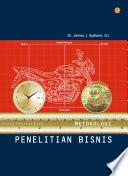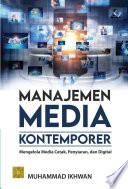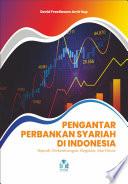
Manajemen Pendidikan Di Era Merdeka Belajar
Untuk itu, kini di berbagai belahan dunia terus berlomba meningkatkan kualitas pendidikan. Indonesia pun sedang berlomba untuk meningkatkan kualitas pendidikan. Berbagai kebijakan Pemerintah, mulai dari pembenahan kurikulum, pemberian fasilitasi pendukung operasional pendidikan, pembuatan pelatihan-pelatihan guru, penumbuhan karakter peserta didik melalui lomba, peningkatan akses pendidikan di daerah-daerah terpencil, terluar dan terdepan, pembangunan sarana pendidikan lainnya, hingga evaluasi pendidikan terus digalakkan. Semua ini dilakukan untuk mewujudkan MERDEKA BELAJAR dengan Visi Pendidikan Indonesia “ Mewujudkan Indonesia maju yang berdaulat, mandiri, dan berkepribadian melalui terciptanya Pelajar Pancasila yang bernalar kritis, kreatif, mandiri, beriman, bertaqwa kepada Tuhan Yang Maha Esa, dan berakhlak mulia, bergotong royong, dan berkebhinekaan global, selaras dengan ujuan cita-cita besar negara: mencerdaskan kehidupan bangsa. Untuk mewujudkan semua itu pasti membutuhkan manajemen yang baik. Cita-cita yang baik membutuhkan perencanaan, pengorganisasian, pelaksanaan, hingga evaluasi yang baik dan terarah. Tanpa menajemen yang baik, maka mutu pendidikan bisa jadi tak terkola dengan baik sehingga kurang memberikan manfaat bagi dunia pendidikan. Dengan begitu, dikotomi antara mutu pendidikan dan manajemen pendidikan bukan lagi merupakan sesuatu yang penting untuk diperdebatkan, karena kedua-duanya sangat penting bagi dunia pendidikan. Mutu pendidikan membutuhkan manajemen yang baik dan manajemen yang baik membutuhkan kualitas Sumber Daya Manusia. Untuk tujuan itulah, buku ini menjadi niscaya untuk diterbitkan.
- ISBN 13 : 6239798959
- ISBN 10 : 9786239798956
- Judul : Manajemen Pendidikan Di Era Merdeka Belajar
- Pengarang : Mohamad Mustari,
- Kategori : Business & Economics
- Penerbit : Prodi S2 Studi Agama-Agama UIN Sunan Gunung Djati Bandung
- Bahasa : id
- Tahun : 2022
- Halaman : 110
- Google Book : https://play.google.com/store/books/details?id=BdxfEAAAQBAJ&source=gbs_api
-
Ketersediaan :
Untuk jenjang SD/MI, SD/MI, dan SMP/MTs, penilaian nasional akan dilakukan di kelas 5, kelas 8, dan kelas 11 untuk membantu guru dan kepala sekolah meningkatkan kualitas pembelajaran. Mulai tahun 2021 dan kedepan diproyeksikan menjadi ...









